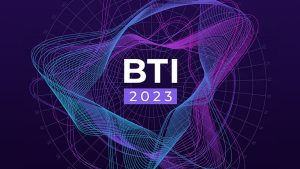
Kevin Cunningham, Managing Director Expleo UK
To say that technology has changed the world over the course of the last two decades would be something of an understatement. Technology has changed how we both live and work; all the way from the emergence of smartphones to more recent developments such as autonomous vehicles. We are privileged to be living in a time where science and technology can assist us, where innovations will only continue to make our lives easier and speak ways to transform our modern experience.
From a technology perspective, I’m inspired by how it allows our lives to augment reality. For example, AI is growing in its reputation among business leaders as an emerging asset to the workforce and is presently found in several different industries already; transforming the way businesses and societies operate. If we were to look at the healthcare industry, we can see how hospitals now heavily rely on technology to enhance patient care and improve treatment outcomes. The new wave of artificial intelligence and machine learning gives medical professionals the ability to sort through mountains of information, suggest possible conditions and treatments and receive assistance during medical procedures. What’s more, is that tech brands such as Microsoft, aim to accelerate innovation within industries such as healthcare further, to improve the treatment patients are receiving through AI and cloud computing.
Additionally, there has also been a recent growth in the use of robotic process automation (RPA), driven in part by the wider trend for digital transformation. For instance, the process of streamlining and digitising processes has created new areas where automation improves efficiency and overall productivity, as well as supporting existing employees in responding to increased customer demands.
However, for some industries, adopting this technology is still a difficult process. For instance, a recent report revealed that British retailers were found to be integrating artificial intelligence into their operations at a much slower pace than other major industries. This is because many are still struggling to adopt quality technology techniques that meet with modern consumer expectations.
Preparing for the AI Takeover
The reality is AI and RPA devices are proficient at repetitive, monotonous tasks. They compute numbers in seconds, they don’t tire of repetition and they can be programmed to never make a mistake when performing basic, straightforward duties. Embracing this phenomenon can create incredible proficiencies, especially in today’s on-demand digital era. However, careful consideration needs to be given to ensure that where emotional intelligence is required, it is not replaced by artificial intelligence.
Quality is the Priority
When it comes to implementing AI and robotic technology into business processes, thought must be put into quality, to ensure that innovation is not jeopardised by software issues. As the technology itself continues to morph, quality assurance needs to be undertaken in both a timely manner and at regular intervals, to ensure that AI enriches all our lives.
Ultimately, your ability to adapt and respond to the market will determine your success. Business leaders need to ensure that all initiatives are optimised and aligned to the business strategy and goals, to build best practice and quality, and subsequently achieve the maximum benefits from this technology.
But with technology developing further, we will undoubtedly see increased adoption of modalities such as AI and RPA and innovation becoming more advanced. So, it’s important for business leaders to keep on top of these trends, as implementing advanced technology presents the perfect opportunity to evaluate and improve on processes; both on a per project basis and across the business, to ensure that the transition delivers significant lasting value.





